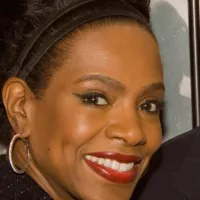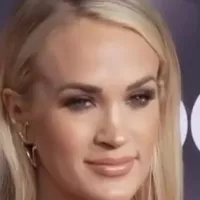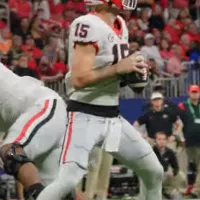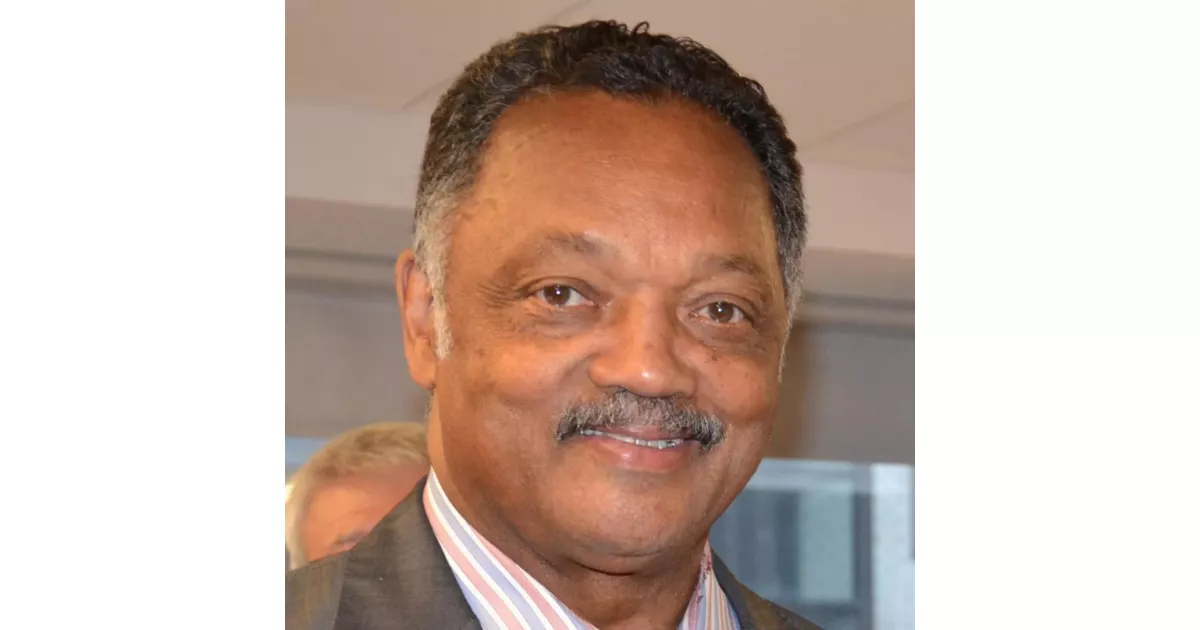Controversies are a part of history. Explore the biggest scandals linked to Jesse Jackson.
Jesse Louis Jackson is a prominent American civil rights activist, politician, and Baptist minister. He rose to prominence as a protégé of Martin Luther King Jr. during the Civil Rights Movement and has remained a leading figure in civil rights advocacy for decades. He served as a shadow delegate and senator for the District of Columbia from 1991 to 1997. Jackson is also the father of former U.S. Representative Jesse Jackson Jr. and current U.S. Representative Jonathan Jackson.
April 4, 1968: King's Assassination
On April 4, 1968, Martin Luther King Jr. was assassinated. Jackson was in the parking lot one floor below and claimed to be the last person to speak to King, though this account was disputed.
December 1971: Falling Out with Abernathy
In December 1971, Jesse Jackson and Ralph Abernathy had a complete falling out, leading to Jackson's suspension as leader of Operation Breadbasket. Al Sharpton left the SCLC to protest Jackson's treatment.
1978: Meeting with James Earl Ray
In 1978, Jesse Jackson met with James Earl Ray, the convicted assassin of Martin Luther King Jr., for four hours.
1983: Boycott against Anheuser-Busch
In 1983, Jesse Jackson and Operation PUSH led a boycott against beer giant Anheuser-Busch, criticizing their minority employment levels.
1984: Address to Democratic National Convention
In 1984, Jesse Jackson addressed the Democratic National Convention, offering an apology for comments considered derogatory to Jews and reaffirming his loyalty to the party.
1984: Petition to Halt Execution
In 1984, Jesse Jackson and Coretta Scott King sent letters asking Florida governor Bob Graham to halt the execution of James Dupree Henry.
1984: Jackson Criticized for Anti-Semitic Remarks
In 1984, Jesse Jackson faced criticism for using anti-Semitic slurs, which strained his relationship with the Jewish community.
1984: Jackson uses pejorative term for Jews
In 1984, Jesse Jackson was criticized for referring to Jews as "Hymies" and New York City as "Hymietown" in remarks to a Washington Post reporter, mistakenly believing they wouldn't be printed. Louis Farrakhan further complicated the situation by warning that any harm to Jackson would be the last.
June 1986: Commencement Speech at Medgar Evers College
In June 1986, Jesse Jackson delivered a commencement speech at Medgar Evers College, expressing concerns about ethical and spiritual decline among young people and the rise of drug use.
1987: Involvement in Chicago Mayoral Election
In 1987, Jesse Jackson intervened in the Chicago mayoral election to prevent the deterioration of the Democratic campaign and avoid a split in the Democratic vote, amidst concerns about Harold Washington's reelection.
1987: PUSH's Activities and Debt
In 1987, Operation PUSH's activities included boycotts and programs for housing, social services, and voter registration. The organization was imperiled by debt.
1998: Opposition to Clinton's Impeachment
In 1998, Jesse Jackson voiced his opposition to President Clinton's impeachment following the Monica Lewinsky scandal, arguing that impeachment was too severe a punishment for Clinton's actions.
August 1999: Rainbow Push Coalition Payments to Stanford
In August 1999, the Rainbow Push Coalition paid Karin Stanford $15,000 in moving expenses and $21,000 in payment for contracting work.
November 18, 1999: Decatur, Illinois, High School Expulsions
On November 18, 1999, after seven high school students in Decatur, Illinois were expelled for two years following a brawl at a football game, Jesse Jackson protested the expulsions arguing that they were unfair and racially biased.
March 2000: Criticism of Giuliani
In March 2000, Jesse Jackson criticized Rudy Giuliani's handling of the Patrick Dorismond shooting, prompting a response from Giuliani's spokesman, who accused Jackson of joining a political attack led by Al Sharpton on behalf of Hillary Clinton.
2000: Jackson Clashes with Jeb Bush
In 2000, Jesse Jackson clashed with Governor of Florida Jeb Bush.
January 2001: Affair with Karin Stanford Revealed
In January 2001, it was revealed that Jesse Jackson had an affair with a staffer, Karin Stanford, which resulted in the birth of a daughter, Ashley.
2002: Criticism of Regier Nomination
In 2002, Jesse Jackson joined Democrats in criticizing Jeb Bush's nomination of Jerry Regier for the Department of Children and Families, referencing Regier's 1989 paper.
2002: Remarks on Democracy and Lawsuit Allegations
In 2002, Jesse Jackson stated there was a "new America" abandoning Jeffersonian democracy for "King democracy". Also, African Americans Against Exploitation Inc. filed suit against Jackson, alleging misrepresentation, to which Jackson responded it was a nuisance lawsuit. Jackson was also a target of a white supremacist terror plot that year.
February 15, 2003: Speech at Anti-War Demonstration in London
On February 15, 2003, Jesse Jackson spoke in front of over an estimated one million people in Hyde Park, London at the culmination of the anti-war demonstration against the imminent invasion of Iraq by the U.S. and the United Kingdom.
September 1, 2003: Arrest at Yale University Protest
On September 1, 2003, Jesse Jackson was arrested for blocking traffic at Yale University while supporting striking workers.
June 2004: Rebuke of Bush's Voting Roll Purge Request
In June 2004, Jesse Jackson rebuked Jeb Bush for requesting counties to purge felons from voting rolls, calling it a tactic to deny the right to vote based on race. Bush called Jackson's comments "outrageous."
August 2005: Meeting with Hugo Chávez in Venezuela
In August 2005, Jesse Jackson traveled to Venezuela to meet with President Hugo Chávez after controversial remarks by Pat Robertson. Jackson condemned Robertson's remarks and stated that there was no evidence Venezuela posed a threat to the U.S.
2005: FEC Fine for Electoral Law Violation
In 2005, the Federal Election Commission ruled that Jesse Jackson and the Democratic National Committee violated electoral law and fined them $200,000.
March 2006: Response to Duke Lacrosse Case
In March 2006, following allegations against members of the Duke University men's lacrosse team, Jesse Jackson stated that his Rainbow/PUSH Coalition would pay for the accuser's college tuition, regardless of the case's outcome.
November 2006: Role in Michael Richards Scandal
In November 2006, Jesse Jackson played a key role in the scandal caused by Michael Richards's racist tirade, accepting Richards' apology and advocating for the elimination of the "N-word" in the entertainment industry.
June 23, 2007: Arrest at Gun Store Protest
On June 23, 2007, Jesse Jackson was arrested for trespassing during a protest at a gun store in Riverdale, Chicago, due to allegations that the store was selling firearms to local gang members.
July 6, 2008: Controversial Remarks About Obama
On July 6, 2008, Jesse Jackson was caught on microphone making disparaging remarks about Barack Obama, expressing disappointment in Obama's Father's Day speech. He later apologized and reiterated his support.
November 2009: Criticism of Health Care Bill Opponents
In November 2009, Jesse Jackson criticized black individuals voting against Obama's health care bill, which was interpreted as a dig at Representative Artur Davis.
February 2012: Involvement in Trayvon Martin Case
In February 2012, following the shooting of Trayvon Martin, Jesse Jackson joined Martin's parents in demanding the arrest of George Zimmerman and called for repealing stand-your-ground laws.
July 2013: Advocacy for Marissa Alexander
In July 2013, Jesse Jackson met with Marissa Alexander and called for a reduction in her 20-year sentence, contrasting it with George Zimmerman's acquittal.
2013: Attendance at Hugo Chávez's funeral
In 2013, Jesse Jackson attended Hugo Chávez's funeral and commented on the evolution of democracies, drawing parallels with the historical context of slavery in the United States.
January 2018: Jackson Accuses Trump of Misleading
In January 2018, Jesse Jackson delivered a sermon in Fort Washington, Maryland, accusing Donald Trump of being misleading and out of touch with the common person due to his inherited wealth and privilege.
February 2019: Jackson Responds to Jussie Smollett Incident
In February 2019, Jesse Jackson responded to the reported hate crime against Jussie Smollett, calling it a "barbaric lynching." After Smollett was charged with falsifying the attack, Jackson requested leniency for him.
June 2019: Jackson Discusses Biden's Record on Segregation
In June 2019, Jesse Jackson stated that he did not understand Joe Biden's past support for segregated school busing, expressing his opposition to states' rights as Biden prepared to deliver remarks for Rainbow PUSH.
August 3, 2021: Jackson Arrested During Voting Rights Protest
On August 3, 2021, Jesse Jackson was arrested alongside others while protesting for Congress to end the filibuster, protect voting rights, and raise the federal minimum wage to $15 an hour.
May 2024: Jackson Writes About Gaza War
In May 2024, Jesse Jackson wrote about the Gaza war in The Chicago Maroon, condemning the October 7 attacks, but calling Israel's response an attack on Palestinian civilians and a massacre, and expressed support for pro-Palestinian protests on college campuses.
Mentioned in this timeline

Donald John Trump is an American politician media personality and...

Bernie Sanders is a prominent American politician currently serving as...
Fox News Channel FNC is a conservative American news and...

Tupac Shakur also known as Pac and Makaveli was a...

Bill Clinton the nd U S President - served as...

John F Kennedy JFK was the th U S President...
Trending

3 months ago Taylor Swift's 'Showgirl' sells 2.7M copies on day one, tops box office.

3 months ago Emma Navarro vs. Shuai Zhang: WTA Wuhan Open 2025 Match Prediction and Preview

9 months ago Sheryl Lee Ralph: From 'Ghosts' Miss to Hollywood Walk of Fame Star

8 months ago Carrie Underwood's New Career Announcement and 'American Idol' Return Speculation Spark Excitement

4 months ago Casper Ruud Becomes Global Ambassador for Mango Man: A Fashionable Partnership

4 months ago Bette Midler Joins Kristen Wiig and Jonah Hill in Warner Bros. 'Cut Off'
Popular

Carson Beck is an American college football quarterback currently playing...
Curt Cignetti is an American college football coach currently the...

XXXTentacion born Jahseh Dwayne Ricardo Onfroy was a controversial yet...
WWE Raw a professional wrestling television program by WWE airs...

Stranger Things created by the Duffer Brothers is a popular...

Kristi Noem is an American politician who has served as...
